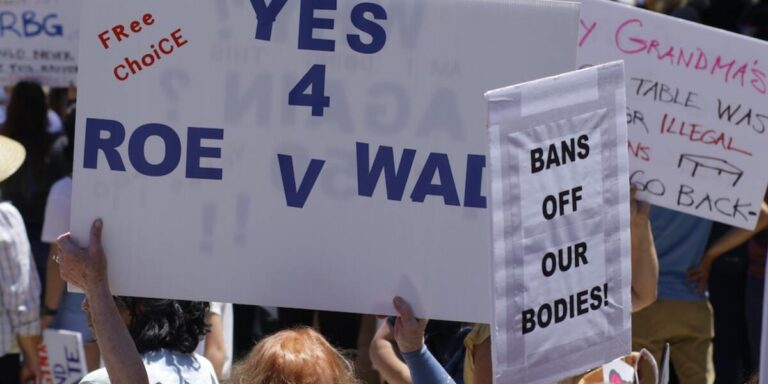Can you leave your spouse out of your will in Virginia?
If you are a resident of Virginia and considering leaving your spouse out of your will, it is important to understand the inheritance laws in place. The state has specific regulations when it comes to who can receive assets from an estate, so understanding these rules before drafting or changing a will is essential. Knowing what rights spouses have under Virginia’s inheritance laws with wills may help prevent potential disputes between family members after death.
The probate process can be complex and overwhelming for those without legal experience or knowledge on how the law applies to their situation; this makes seeking professional advice highly recommended. An experienced probate lawyer should be able to provide guidance on whether excluding one’s spouse from a will would violate any applicable statutes as well as answer other questions related to estate planning in Virginia such as tax implications or eligibility requirements for certain types of trusts.
Understanding Virginia Inheritance Laws and Wills
Understanding Virginia inheritance laws and wills is an important part of estate planning. The state’s intestacy statutes determine who will receive a decedent’s assets if they die without a valid will in place. In order to ensure that your wishes are respected, it is essential to have a comprehensive understanding of the relevant legal provisions as well as how these may be applied in practice. A probate lawyer can provide invaluable assistance with this process by helping you draft or review existing documents such as last wills and testaments so that all applicable regulations are met when distributing property after death. Furthermore, they can also advise on any potential tax implications associated with inheriting wealth within the Commonwealth of Virginia while ensuring compliance with federal law where necessary.
Exploring the Option of Excluding a Spouse from Your Will in Virginia
In Virginia, a spouse is automatically entitled to receive their fair share of an estate if the deceased had not left behind a valid will. In certain circumstances, however, it may be possible for individuals in Virginia to exclude their spouses from inheriting any part of the estate through careful planning and drafting of a legally binding will.
When creating or updating your last testamentary document with regards to inheritance laws in Virginia you should consider consulting with an experienced probate lawyer who can help ensure that all legal requirements are met so as to prevent disputes arising after death. The attorney can provide advice on how best structure your wishes within the confines of applicable state law; such as which assets should remain separate property versus marital property subjecting them different rules regarding distribution upon death. Furthermore they can advise whether special trusts need establishing or other measures taken when attempting to disinherit one’s surviving spouse while still adhering by statutory provisions governing wills and estates in VA . A skilled probate lawyer also has experience dealing with complex family dynamics often involved during this process which could prove invaluable when navigating these delicate matters successfully without compromising important relationships between heirs..
Navigating Legalities with Assistance From a Probate Lawyer
Understanding the complexities of Virginia inheritance laws with wills can be a daunting task. A probate lawyer is an invaluable asset in this process, as they are experienced and knowledgeable about state-specific regulations regarding estate planning. With their help, you will have access to expert advice on how best to handle your situation based on your specific needs and goals for distributing assets after death. Probate lawyers also provide assistance in filing necessary paperwork related to transferring property or money from one person’s name into another’s ownership following a decedent’s passing away. They ensure that all legal requirements are met when it comes time for the court system to approve any changes made during the distribution process according to law – making sure that everything runs smoothly without unnecessary delays or costly mistakes being made along the way. Additionally, if there happens disputes among family members over who should receive what portion of assets left behind by deceased loved ones; then having a probate attorney present can often help resolve such matters quickly while protecting everyone involved from potential litigation down road due unforeseen complications arising out of ignorance concerning applicable laws governing inheritance rights under particular circumstances at hand .
Examining Potential Consequences of Omitting a Spouse From Your Will in VA
When making a will in Virginia, it is important to consider all potential consequences of omitting a spouse from the document. In this state, if an individual dies without leaving behind any surviving children or other descendants and has not included their spouse in the will, then that person’s estate may be subject to intestate succession laws which dictate how assets are distributed among family members. This means that even though you may have intentionally omitted your partner from your last testamentary wishes they could still inherit some portion of your property depending on whether there are any relatives who would qualify as heirs under VA law.
Additionally, when crafting a valid legal document such as a Last Will & Testament (LW&T) within Virginia’s boundaries it is essential for individuals to take into account certain formalities prescribed by statute; failure to do so can result in portions of the LW&T being deemed invalid upon death – potentially resulting in unintended distributions occurring after probate proceedings conclude. It is therefore highly recommended that anyone considering creating an estate plan seek out professional assistance from qualified attorneys specializing specifically with matters related to inheritance law and wills – these professionals can help ensure one’s intentions regarding asset distribution remain legally binding throughout life and beyond its end .
Frequently Asked Question
-
Can you leave your spouse out of your will in Virginia?
-
Does beneficiary get all the money?
-
Who is a key beneficiaries?
-
How does inheritance work in Virginia?
-
Do all wills have to be probated in Virginia?
-
When a husband dies what is the wife entitled to in VA?
-
Can a beneficiary turn down an inheritance?
-
What is the 5 year beneficiary rule?
-
What is the rule of beneficiary?
-
Who comes first in inheritance?
Virginia Law makes it almost impossible to divorce your spouse because marriage has been reinterpreted as an economic partnership. Even if they are not named in your will, your spouse may sue you for half of the estate.
A financial account owner will choose the primary beneficiary as their first beneficiary choice. Other beneficiaries may also be included in estate or account documents. However, the primary beneficiary will get all assets.
Principal and contingent beneficiaries. A primary beneficiary (or group of beneficiaries) is usually your spouse, your children, or another family member who will be the first to receive your death benefit.
Virginia has its own inheritance laws. Virginia is not subject to an estate or inheritance tax, as are many other states in the United States. If your estate requires it, the state may impose a very rare probate tax.
Are All Estates Required to Be Probated in Virginia? With the exception of trusts, most estates go through probate. A small estate does not require formal probate which makes it easier to complete.
64.2-304. 64.2-304.
Yes. It is technically called “disclaiming”. You must understand what the disclaimer means and how to make sure it qualifies under state or federal law if you want to claim an inheritance.
Distributions to an inherited IRA are subject to the 5-year rule. An inherited IRA account can only be withdrawn if it has been open for at least five years from the date of death.
The Benefit-of-the-Beneficiary Rule provides that a trust and its terms must be for the benefit of its beneficiaries. Most estate planners keep up-to-date with the IRS rulings and tax cases that impact our planning methods.
Next of Kin: Your children, siblings and parents are considered next-of-kin. A spouse is not considered next of kin because it refers to a blood relative. If you are not able to make a will, your surviving spouse is the first person who inherits your estate.
Conclusion
In conclusion, when it comes to Virginia inheritance laws and wills, there are a few things you should keep in mind. It is important to do your research before making any decisions about leaving out your spouse from the will. Be sure to look for trusted links and reviews on our website so that you can make an informed decision with the help of a probate lawyer who understands these laws. By doing this, you can ensure that all parties involved receive their fair share according to Virginia’s state law.







